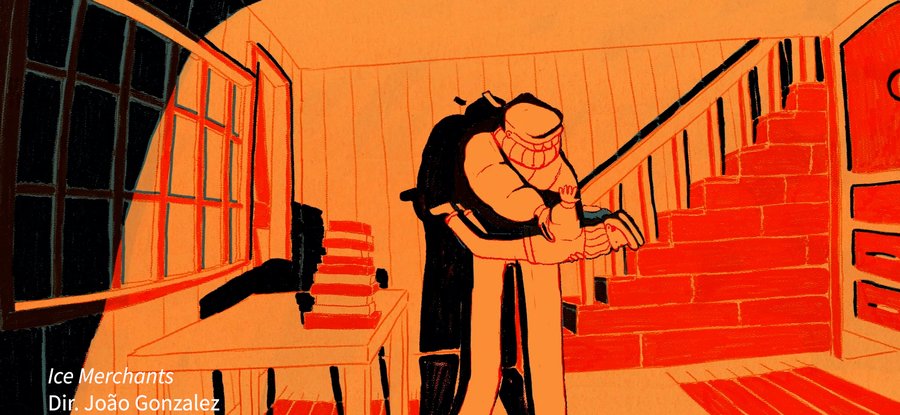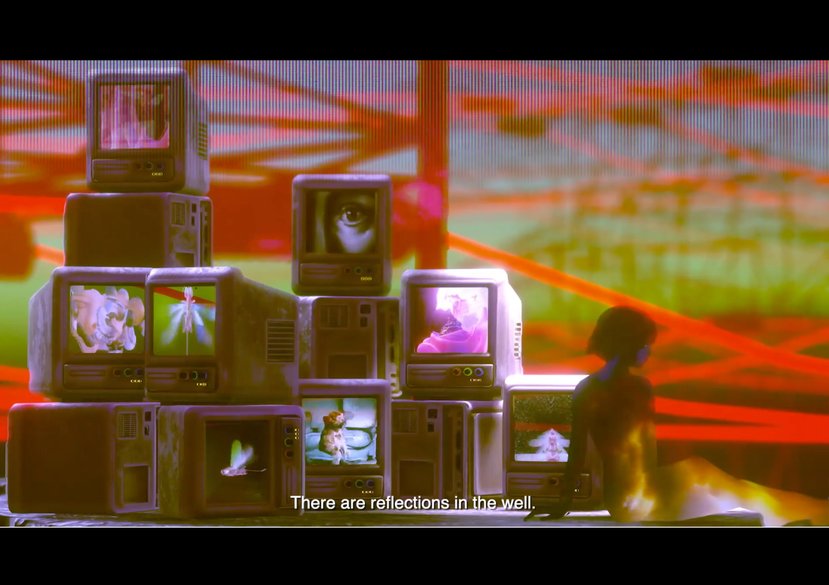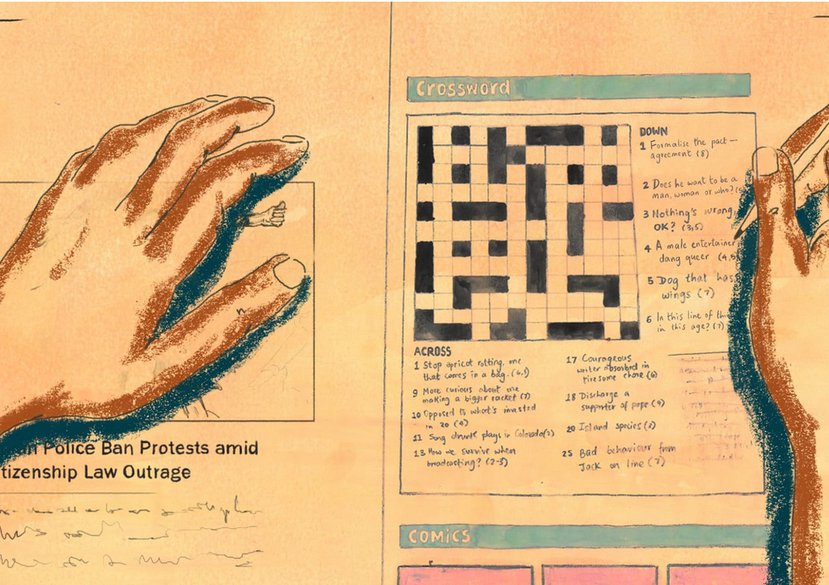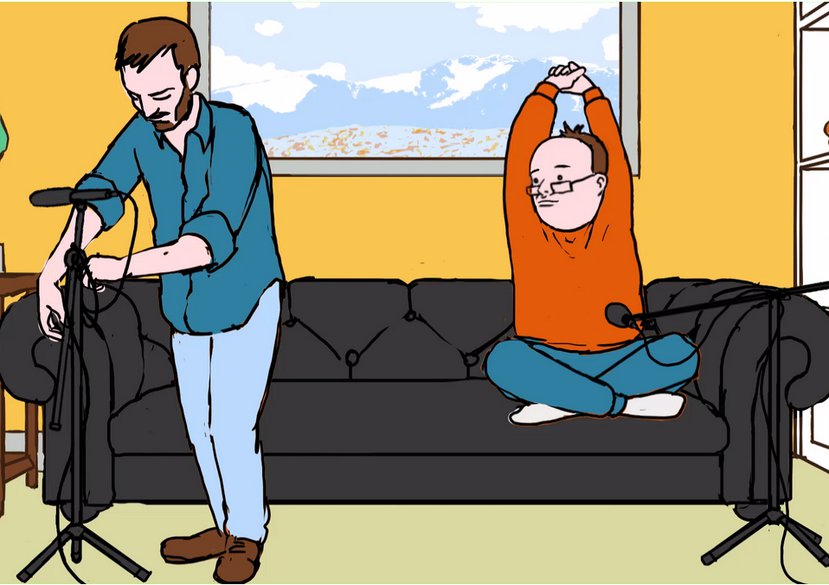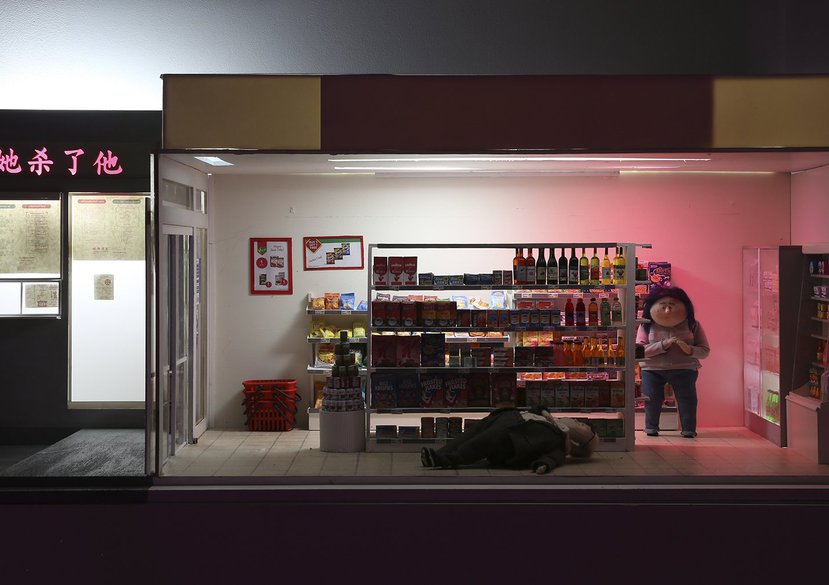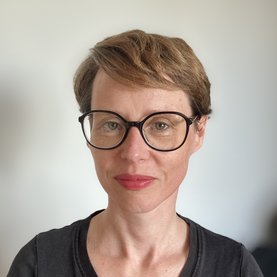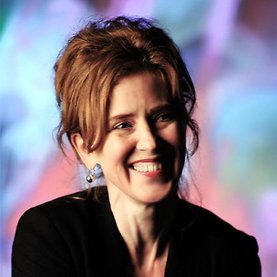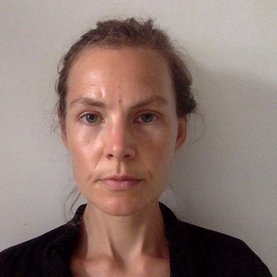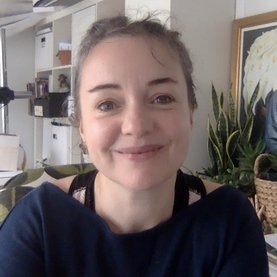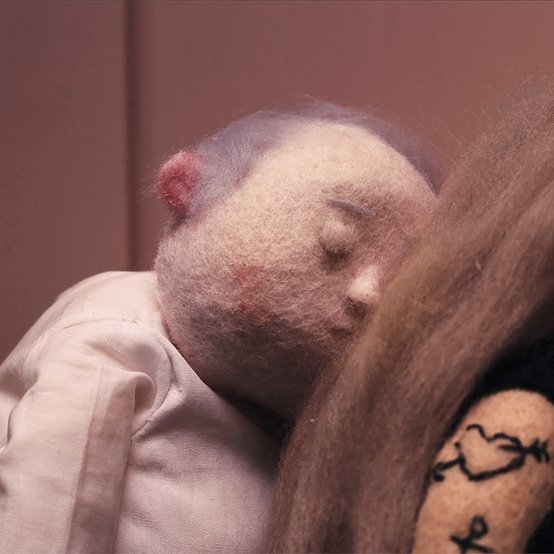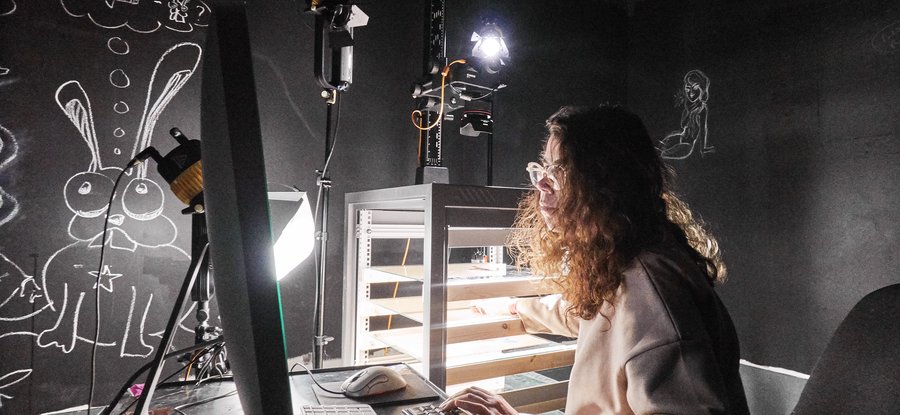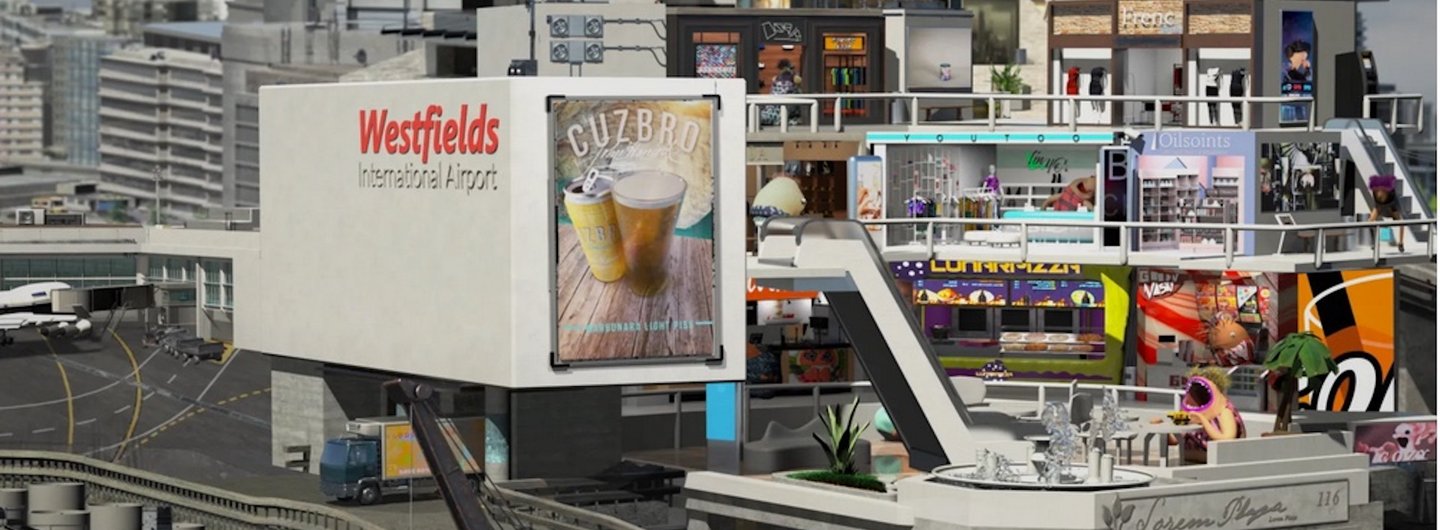
Overview
Animation is a dynamic visual communication paradigm
Key details
- 180 credits
- 1 year programme
- Full-time study
School or Centre
Location
- White City
Next open event
Application deadline
- 14 Aug 2024
Develop your creative expertise to influence how audiences see and understand the social, political and cultural animated worlds and experiences you create
Discover the world-class Animation programme at the Royal College of Art, renowned for its artistic excellence, director-led approach and innovative risk-taking. Our students delve into the dynamic realm of animation, exploring the intersections of virtual reality, augmented reality and new media art. Through embracing experimentation and creativity, we cultivate critical thinking to examine social and cultural issues.
By empowering you to navigate rapid cultural and technological changes, we encourage the exploration of diverse narrative stances, from direct storytelling to playful abstraction. You'll gain expertise in various techniques, concepts and canons.
Join us at the Royal College of Art and be part of an animation community that drives creative boundaries, embraces innovation and impacts the world. Together, we'll shape the future of animation.
Applications for the September 2024 intake are open and will be assessed on a rolling basis. Programmes will close for applications when the maximum number of places have been awarded, or at the final deadline on 14 August, 12 noon (UK time).
Explore graduate work
In July 2023, students presented RCA2023, a series of exhibitions and events. Explore online at the RCA2023 website.
You can also view previous events and exhibitions online at Showcase.
Find out more about this programme
Catch the replays from our latest online Open Day.
Learn more about Head of Programme Dr Samantha Moore.
Gallery
Staff
Facilities
The School of Communication is currently located on our White City site.
View all facilitiesOur mixed-use studios encourage collaborative working, thought, awareness and action. In addition, you have access to craft and technical workshop areas and excellent technical support in the College.
Our alumni
Our alumni form an international network of creative individuals who have shaped and continue to shape the world. Click on each name to find out more.
Where will the RCA take you?More details on what you'll study.
Find out what you'll cover in this programme.
What you'll cover
What will I learn?
The curriculum revolves around practice-as-research, experimentation, and constructive critique, with a discursive approach emphasising the development of creative time-based content through collaboration, questioning, exchange, and process exploration. Our world-class programme team and state-of-the-art facilities support your journey, enabling you to explore enduring historical relations with material-based media like painting, drawing, illustration, and sculpture – the core of animation practice. Digital tools, deep learning processes, sound, display practices, and film language enhance these traditional media. We engage with various screen-based and related forms, including installations, projection mapping, VR, AR, extra-cinematic animation, theatre environments, sci-tech visualisation tools, and the spatial politics of citizen science games or apps. You will grasp opportunities from animation’s increasing pervasiveness and shape how your audiences perceive and understand the worlds and experiences you create. You'll experience a collaborative professional environment and build an equitable, encouraging, challenging community of practitioners with your peers from other programmes.
Throughout the programme, we challenge and encourage you to engage in innovative practice-oriented research, paying close attention to the nuances of cultures, ethics, diversity, identities, traditions, environments, and futures. Our students engage in diverse interdisciplinary contexts, spanning drama, literature, philosophy, fine and applied arts, film and media theory, art history, STEM disciplines, and architecture. By deepening your understanding of animation, you'll develop a critical approach to your practice, intellectually challenging yourself with fresh ideas to broaden and influence social, political, and cultural perspectives through creative engagement.
MA Animation fosters your aspirations and creative transformations as an ethically minded thinker and professionally astute creative artist, filmmaker and problem solver. As part of a vibrant community, you'll engage in dialogues exploring new perspectives on the persuasive potential of animation in the digital humanities and STEAM disciplines.
How will I learn
There will be several opportunities to collaborate with others, but at a minimum, your programme will include 294.5 contact hours and 1505.5 independent study hours. Contact hours can consist of lectures, seminars, tutorials, critical forums and workshops, among other types of teaching delivery.
Teaching types used in this programme can include briefings, projects, tutorials, seminars, lectures, critical forums, technical inductions, technical workshops, offsite visits and blended learning.
Programme structure
The programme has three terms with a combination of programme, School and College units that seek to enable you to build a clear sense of communication methods, practices and contexts for your work.
Term 1
Animation Forms, Methods & Contexts (45 credits) enhances your knowledge and disciplinary and interdisciplinary expertise in key critical contexts and a range of practices, research methods, and approaches within animation moving image practices.
Term 2
Making Worlds with Others (15 credits) This School-wide unit allows you to work alongside students within and across the School. Working from the perspective of your individual practices and disciplines, you will develop a project that engages with others and creates mutual exchanges of ideas and understandings to create critically engaged situations and outcomes resulting in convivial knowledge exchange. Through collaborative learning and making, the unit will support you in understanding knowledge exchange and public engagement and how you are to situate your practice in these territories. The unit will also ask you to question how socially engaged practice can contribute to cultural understanding, co-researching and co-creating methods for knowing with and not knowing about.
Critical Non/Fiction and Experimental /Expanded Practices (30 credits) enables you to build on the learning and explorations from Term 1 to situate and refine your practice with appropriate professional, intellectual, technological and creative contexts. During Term 2, you will develop a Project Proposal and Production Plan articulating your ambitions for an independent research project.
In Terms 1 and 2, you'll also take the College-wide unit AcrossRCA (30 credits).
Term 3
You will apply what you have learned in your engagement in producing your Independent Research Project (60 credits), which you’ll complete as a self-determined body of work negotiated in collaboration with academic and technical staff.
AcrossRCA
AcrossRCA is a compulsory 30-credit unit which is delivered as part of all MA programmes.
Situated at the core of your RCA experience, this ambitious interdisciplinary College-wide unit supports you in responding to the challenges of complex, uncertain and changing physical and digital worlds. Developed in response to student feedback, AcrossRCA creates an exciting opportunity for you to collaborate meaningfully across programmes.
Challenging you to use your imagination and intellect to respond to urgent contemporary themes, this ambitious unit will provide you with the opportunity to:
- make connections across disciplines
- think critically about your creative practice
- develop creative networks within and beyond the College
- generate innovative responses to complex problems
- reflect on how to propose ideas for positive change in local and/or global contexts
AcrossRCA launches with a series of presentations and panel discussions from acclaimed speakers who will introduce the themes and act as inspirational starting points for your collaborative team response.
Delivered online and in-person across two terms, the unit has been designed to complement your disciplinary studies and to provide you with a platform to thrive beyond graduation.
Requirements
What you need to know before you apply
The programme attracts individuals from a notably wide range of disciplines who wish to explore their fields through animation, including, for example, film, architecture, graphic design, literature, communication arts, performance, art history, computing, illustration, pure and applied sciences and maths or fine art, or a combination of these.
Candidates are selected entirely on merit and applications are welcomed from all over the world. The selection process considers creativity, imagination and innovation as demonstrated in your application and portfolio, your technical animation skills and your potential to benefit from the programme and to achieve high MA standards overall.
Candidates are selected on the basis of a body of work that demonstrates an advanced understanding of the subject and sufficient technical animation and moving image skills to realise intentions, evidence of commitment to the subject, intellectual curiosity, open-mindedness, the ability to collaborate, to engage in debate and respond to constructive criticism, and the ability to engage in sustained and consistent study. We also want enthusiasm for your practice, commitment and a strong sense of personal responsibility for your subject matter and your own learning and development.
What's needed from you
Portfolio requirements
Please upload up to three projects. These must include animation / moving image but may also include other media and material forms where relevant, such as illustration sculpture installation etc. Please avoid using portfolio templates; we want to see how you curate your works imaginatively and clearly.
To support each of the three projects, you may add up to three additional items to show the project’s research and development. Show us your conceptual research process and practices, and demonstrate a clear relation between imagination, contextual critical engagement and making. Each of these three additional items should be uploaded and not exceed a maximum of five PDF pages with images, descriptive captions and concise written comments. One of these additional items can be a maximum 1-minute showreel of excerpts of additional work not submitted in your three projects. If you include a showreel, please indicate this clearly in the captions.
We would like you to submit complete films rather than clips where possible, up to a maximum of 10 minutes in total for all three projects, including any 1-minute showreel.
It is important that you ensure all project materials and films are uploaded. Please do not include external links as we will only view what has been uploaded and will not refer to external sites.
All projects should be accompanied by a concise written description communicating a coherent project trajectory and demonstrating your skills and aptitude. Please provide explicit and clear Captions in the justification area for each project (maximum 100 words); and to each image/item, plus Title, Medium, Year, Size (images), Length (min) (films). Indicate any areas of your work you would like to develop further. Ensure you make clear your specific role in any collaboration.
Video requirements
As part of the application process, you must submit a video of no more than 2 minutes.
We want to know why you are applying to the MA Animation and what you want to achieve. Please tell us about your artistic, social, political, and/or contextual interests.
- What are your aims and ambitions for your practice?
- What types of media and technologies do you want to explore?
- Does your work fit in a specific genre or is it interdisciplinary?
Please articulate your intellectual and research process and clearly relate this to an example or two from your portfolio. Tell us about the aesthetic, technical, conceptual and critical perspectives that underpin your work. Your video should communicate a sense of you and your creative journey and aspirations.
We want to know why you are applying to the MA Animation and what you want to achieve. Please use this opportunity to tell us what is not already in your written statement. Your video should communicate a sense of you and your creative journey and aspirations. We want to hear you talk articulately, passionately and intelligently about your motivations for your practice, your relevant personal interests that drive you and what you want or hope to achieve with your work.
- What are your aims and ambitions for your future practice?
- What is your position as an artist in contemporary contexts, and what are your values?
- Which critical, theoretical or philosophical writings or authors have influenced your work, and why?
- Referring to one item in your portfolio, please tell us about your work's main artistic, social, political, ethical and/or environmental perspectives through your intellectual and research process, and make a clear relation between this and the practice work. Tell us about any challenges and how you dealt with them
- What types of media and technologies do you want to explore, and why?
- Why do you want to study MA Animation specifically, at this point in time?
English-language requirements
If you are not a national of a majority English-speaking country you will need the equivalent of an IELTS Academic or UKVI score of 6.5 with a 6.0 in the Test of Written English (TWE) and at least 5.5 in other skills. Students achieving a grade of at least 6.0, with a grade of 5.5 in the Test of Written English, may be eligible to take the College’s English for Academic Purposes course to enable them to reach the required standard.
You are exempt from this requirement if you have received a 2.1 degree or above from a university in a majority English-speaking nation within the last two years.
If you need a Student Visa to study at the RCA, you will also need to meet the Home Office’s minimum requirements for entry clearance.
Fees & funding
For this programme
Fees for new students
Fees for September 2024 entry on this programme are outlined below. From 2021 onward, EU students are classified as Overseas for tuition fee purposes.
Home
Overseas and EU
Deposit
New entrants to the College will be required to pay a non-refundable deposit in order to secure their place. This will be offset against the tuition fees.
Home
Overseas and EU
Progression discount
For alumni and students who have completed an RCA Graduate Diploma and progress onto an RCA Master's programme – MA, MA/MSc, MFA, MDes, MArch, MEd or MRes – within 10 years, a progression discount of £1,000 is available.
* Total cost is based on the assumption that the programme is completed in the timeframe stated in the programme details. Additional study time may incur additional charges.
Scholarships
Scholarships
The RCA scholarship programme is growing, with hundreds of financial awards planned for the 2024/5 academic year. Examples of financial awards offered in 2023/24 are given below.
The Deputy Vice Chancellor’s International Scholarship
For: All MA programmes, MArch, MFA, MDes, MRes & MEd
Eligibility criteria: Students from Australia, Bangladesh, Canada, Colombia, Cyprus, Egypt, France, Germany, Greece, Hong Kong, India, Indonesia, Ireland, Israel, Italy, Japan, Lebanon, Malaysia, Mexico, Nigeria, Pakistan, Poland, Portugal, Saudi Arabia, Singapore, South Korea, Spain, Sri Lanka, Switzerland, Taiwan, Thailand, Turkey, UAE, USA
Eligible fee status: Overseas fee status
Value: £7,000 towards fees
The Deputy Vice Chancellor’s UK Scholarship
For: All MA programmes, MArch, MFA, MDes, MRes & MEd
Eligible fee status: Home fee status
Value: £5,000 towards fees
The Deputy Vice Chancellor’s EU Scholarship
The Deputy Vice Chancellor’s EU Scholarship
For: All MA programmes, MArch, MFA, MDes, MRes & MEd
Eligibility criteria: Students from Austria, Belgium, Bulgaria, Croatia, Cyprus, Czech Republic, Denmark, Estonia, Finland, France, Germany, Greece, Hungary, Iceland, Italy, Latvia, Liechtenstein, Lithuania, Luxembourg, Malta, Netherlands, Norway, Poland, Portugal, Romania, Slovakia, Slovenia, Spain, Sweden, Switzerland, Turkey
Eligible fee status: Overseas fee status
Value: £7,000 towards fees
Eranda Rothschild Scholarship
For: MA Architecture, MA Writing, MA Animation, MA Product Design
Eligible fee status: Home fee status
Value: Full fees & maintenance
The RCA UK Disabled Students’ Scholarship
For: All MA programmes, MArch, MFA, MDes, MRes & MEd
Eligibility criteria: Students who identify as D/deaf or disabled
Eligible fee status: Home fee status
Value: £6,000 for living costs
Sir Frank Bowling Scholarship
For: All programmes excluding PhD & short courses
Eligibility criteria: Black or Black British Caribbean, Black or Black British African, Other Black Background, Mixed - White and Black Caribbean, Mixed - White and Black African
Eligible fee status: Home fee status
Value: Full fees & maintenance
The Vice-Chancellor’s UK Cost of Living Scholarship
For: All MA programmes, MArch, MFA, MDes, MRes & MEd
Eligible fee status: Home fee status
Value: £5,000 for living costs
House of Fraser Bursary
For: Any MA programme
Eligible fee status: Home fee status
Value: £10,000 towards fees
Applying for a scholarship
You must hold an offer to study on an RCA programme in order to make a scholarship application in Spring 2024. A selection of RCA merit scholarships will also be awarded with programme offers.
We strongly recommend that you apply for your programme as early as possible to stand the best chance of receiving a scholarship. You do not apply directly for individual awards; instead, you will be invited to apply once you have received an offer.
More information
Additional fees
In addition to your programme fees, please be aware that you may incur other additional costs associated with your study during your time at RCA. Additional costs can include purchases and services (without limitation): costs related to the purchase of books, paints, textiles, wood, metal, plastics and/or other materials in connection with your programme, services related to the use of printing and photocopying, lasercutting, 3D printing and CNC. Costs related to attending compulsory field trips, joining student and sport societies, and your Convocation (graduation) ceremony.
If you wish to find out more about what type of additional costs you may incur while studying on your programme, please contact the Head of your Programme to discuss or ask at an online or in person Open Day.
We provide the RCASHOP online, and at our Kensington and Battersea Campuses – this is open to students and staff of the Royal College of Art only to provide paid for materials to support your studies.
We also provide support to our students who require financial assistance whilst studying, including a dedicated Materials Fund.
External funding
There are many funding sources, with some students securing scholarships and others saving money from working. It is impossible to list all the potential funding sources; however, the following information could be useful.
Payments
Tuition fees are due on the first day of the academic year and students are sent an invoice prior to beginning their studies. Payments can be made in advance, on registration or in two instalments.
Start your application
Change your life and be here in 2024. Applications now open.
The Royal College of Art welcomes applicants from all over the world.
Before you begin
Make sure you've read and understood the entrance requirements and key dates
More information about eligibility and key datesCheck you have all the information you need to apply.
Read our application process guideConsider attending an Open Day, or one of our portfolio or application advice sessions
See upcoming sessionsPlease note, all applications must be submitted by 12 noon on the given deadline.
Ask a question
Get in touch if you’d like to find out more or have any questions.

